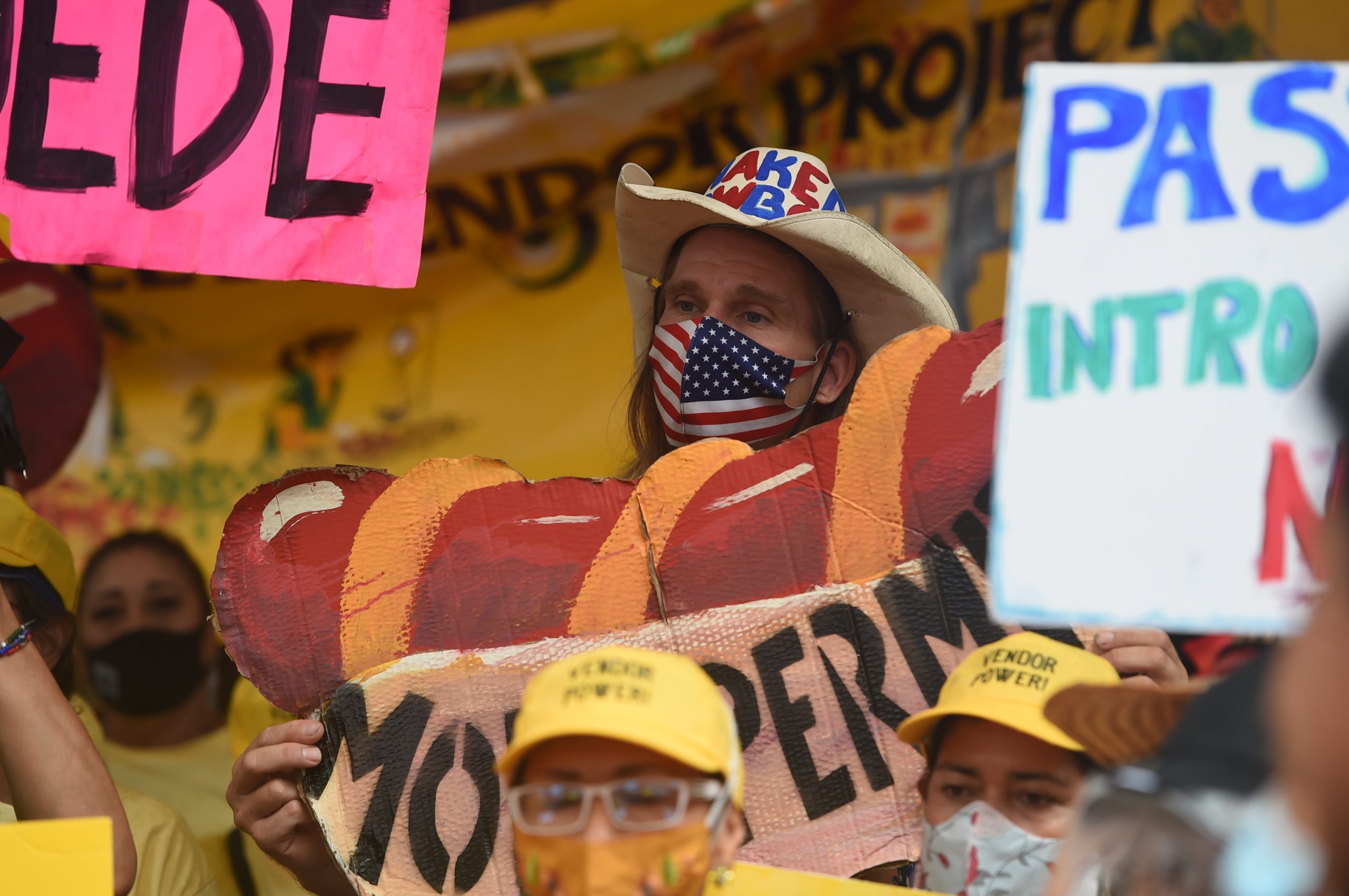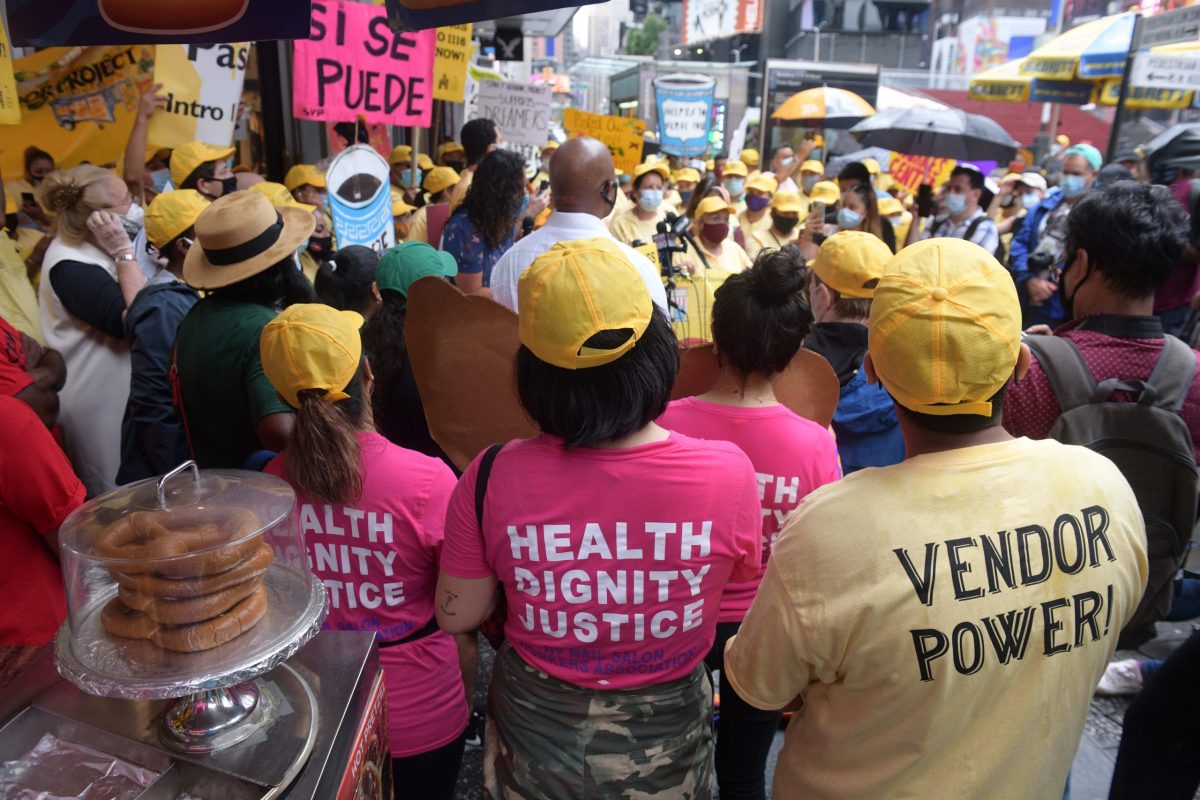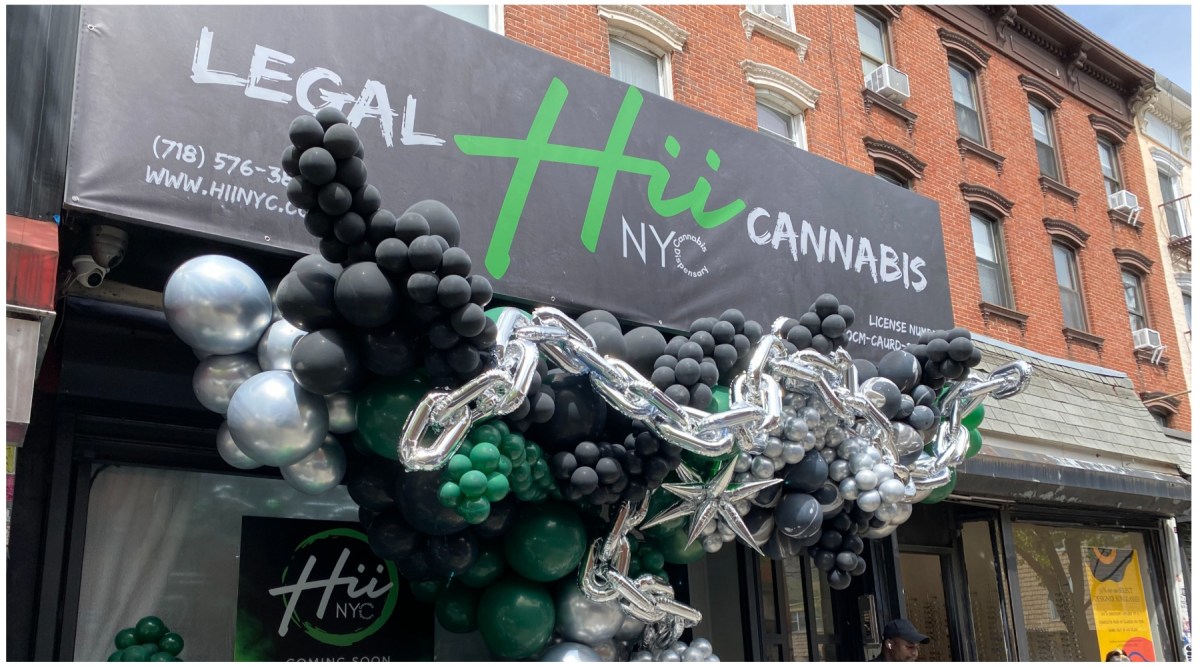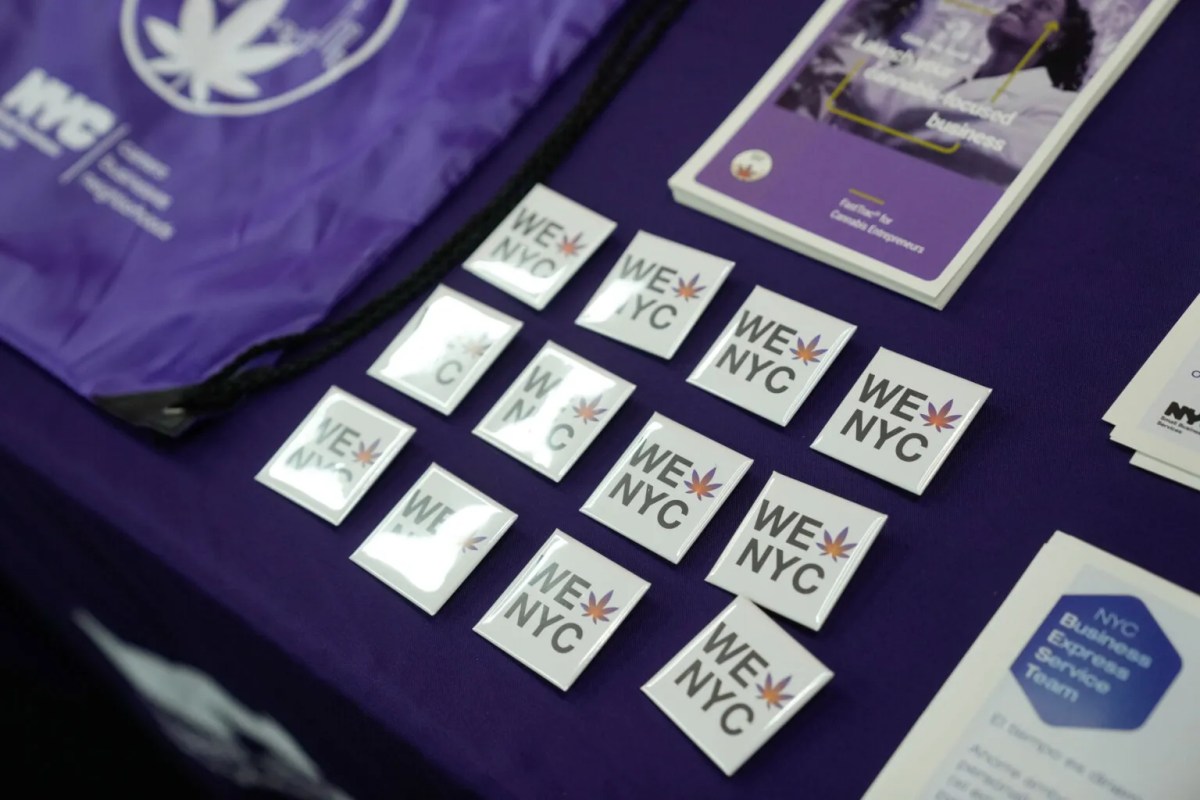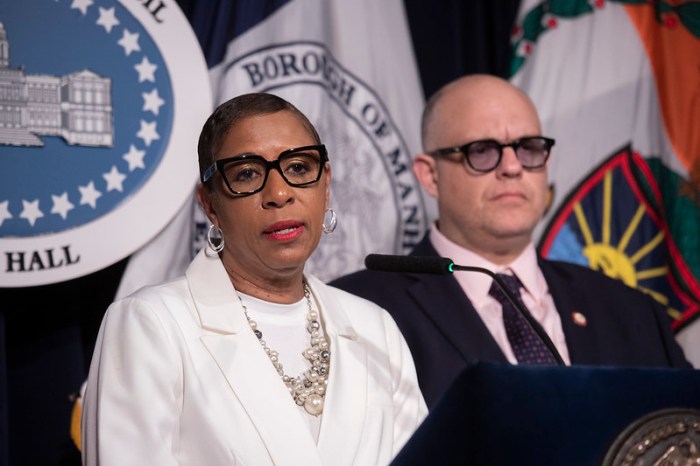Street vendors, elected officials and allied organizations rallied in Times Square on Aug. 13 demanding that Speaker Corey Johnson and the City Council pass of Intro 1116, which would legalize thousands of small businesses by lifting the decades-old cap on permits.
The bill would not only legitimize 4,000 vendors in New York City, but it also welcomes new entries into the market — many of whom are from immigrant families hardest hit economically by the COVID-19 pandemic. Many of those currently operating food carts in the city are immigrants themselves, and they seek to support them in their efforts to become food vendors also.
The proposal, which amends street vendor rules enacted in 1983, would gradually increase the number of permits and licenses issued, and increase fees charged for those permits. But the bill is not without its critics who worry that there is currently no enforcement of existing rule. With the NYPD being shifted away from vendor enforcement, it is still unclear among many as to which agency will bear that responsibility.
Rally leaders on Thursday say street vendors are essential workers who ensured NYC’s hard-hit neighborhoods had access to fresh, affordable food throughout the COVID-19 pandemic. Annually, they generate an estimated $71.2 million in local, state, and federal taxes, and contribute nearly $293 million to the city’s economy.
Yet street vendors have been excluded from almost every form of COVID-19 related relief, be it due to immigration status, the informal nature of their businesses, or continued discrimination against vendors.
Among those supporting the bill at the rally were Borough Presidents Eric Adams of Brooklyn and Gale Brewer of Manhattan. Adams and Brewer maintained that the vendors are an advantage bringing commerce, generating economic activity, being the eyes and ears of law enforcement and providing jobs.
“Let’s be clear – street vending is part of the American dream,” Adams said. “Just about every successful retailer in this country started out somewhere on a street corner selling their merchandise and given the opportunity. In those days, the city participated and helped, so why now do we go instead of participating and helping, we go and become a barrier of destruction? [It’s] destroying an industry and making it impossible for so many people to experience the American dream and instead turning it into an American nightmare.”
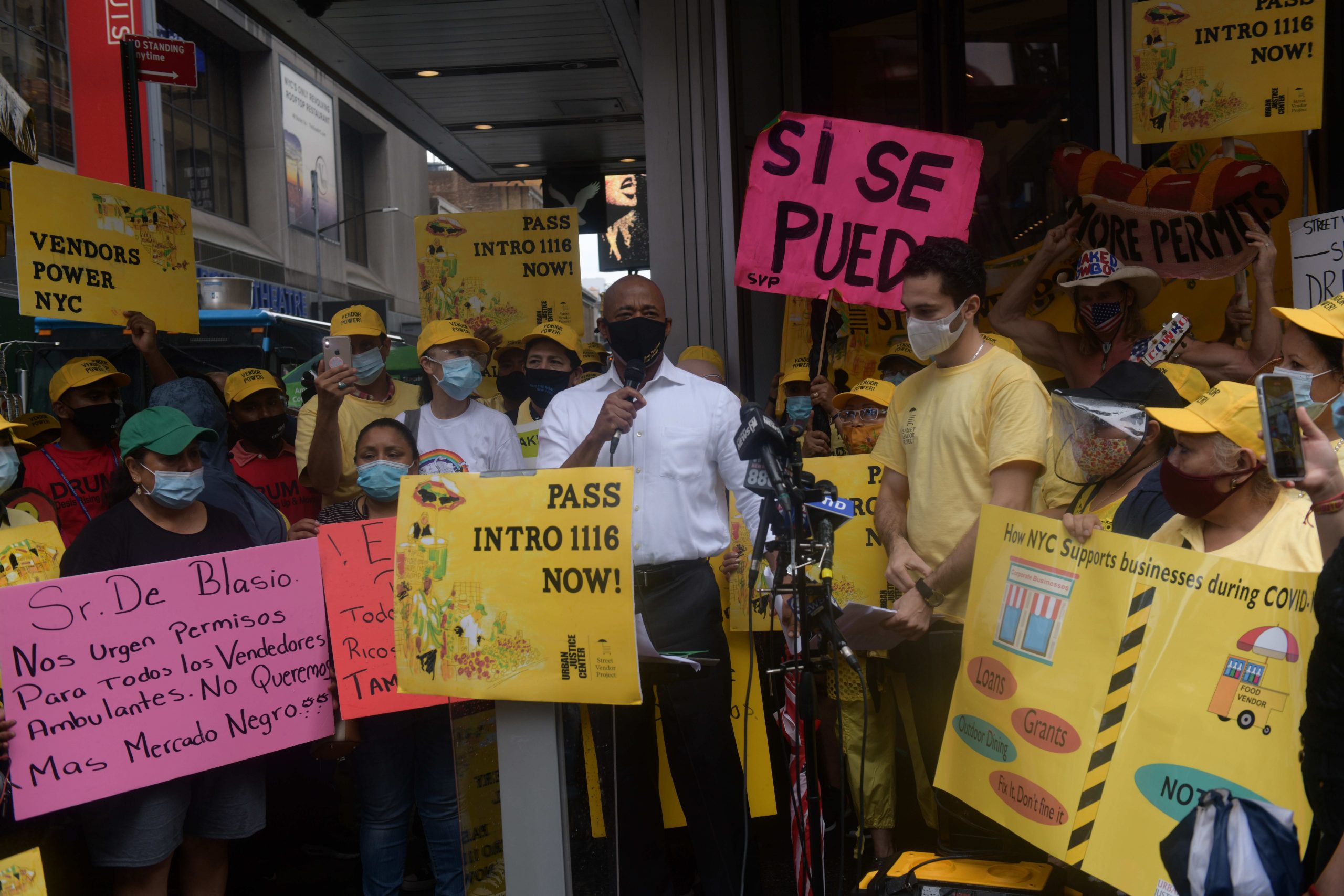
Brewer, who’s borough is most impacted by street vendors, said there is “plenty of room” for new permits without damaging existing brick and mortar businesses. She recognized that many Business Improvement Districts were not in favor of the expansion of permits.
“The issue is very clear – we have to have real enforcement and I know that the business improvement districts are very upset about this bill,” Brewer said. “If there is enforcement that is real, and there is supervision, then there is room for a middle ground.”
She added, “most of them (the street vendors) are in Manhattan because that is where the tourists and the expensive food, but we do need food in our midtown area that people can afford. If there is real enforcement, there is a middle ground.”
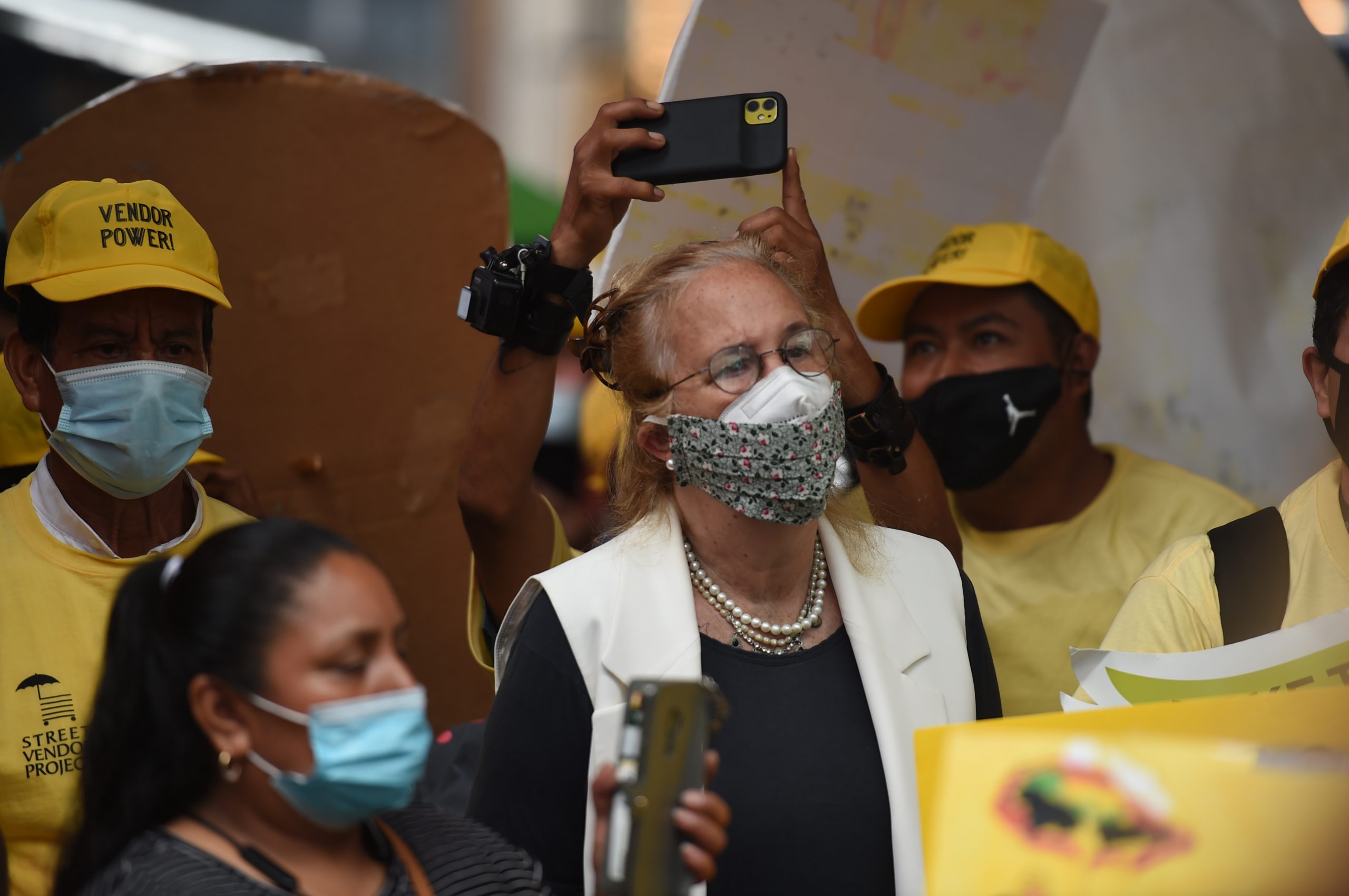
Rob Walsh, former commissioner of the city’s Small Business Services and a small business commentator on 1010 WINS radio, cautioned that any change in the vending law should be supported by proper enforcement by a city agency, will the citing of carts be ‘equitable,’ something he says is currently not in place.
“The problem is enforcement, and what do you do? Will NYPD do this? Nobody has the bodies or authority,” Walsh said. “Right now, they have closed streets including on Montague Street in Brooklyn and you have vendors camping right outside brick and mortar stores that are paying taxes, rents – but there is no enforcement.”
Walsh added that many businesses, including brick-and-mortar, are still struggling after being closed due to the COVID-19 pandemic.
“The problem here is the city doesn’t have a game plan to enforce the rules and that’s a dirty little secret and people like Consumer Affairs are kicking the can down the road,” he said. “Meanwhile, enforcement has not been equitable and that’s a real problem as illegal vendors with counterfeit merchandise are pulling up with trucks and selling in front of retail stores, but the well heeled Fifth Avenue stores get enforcement.”
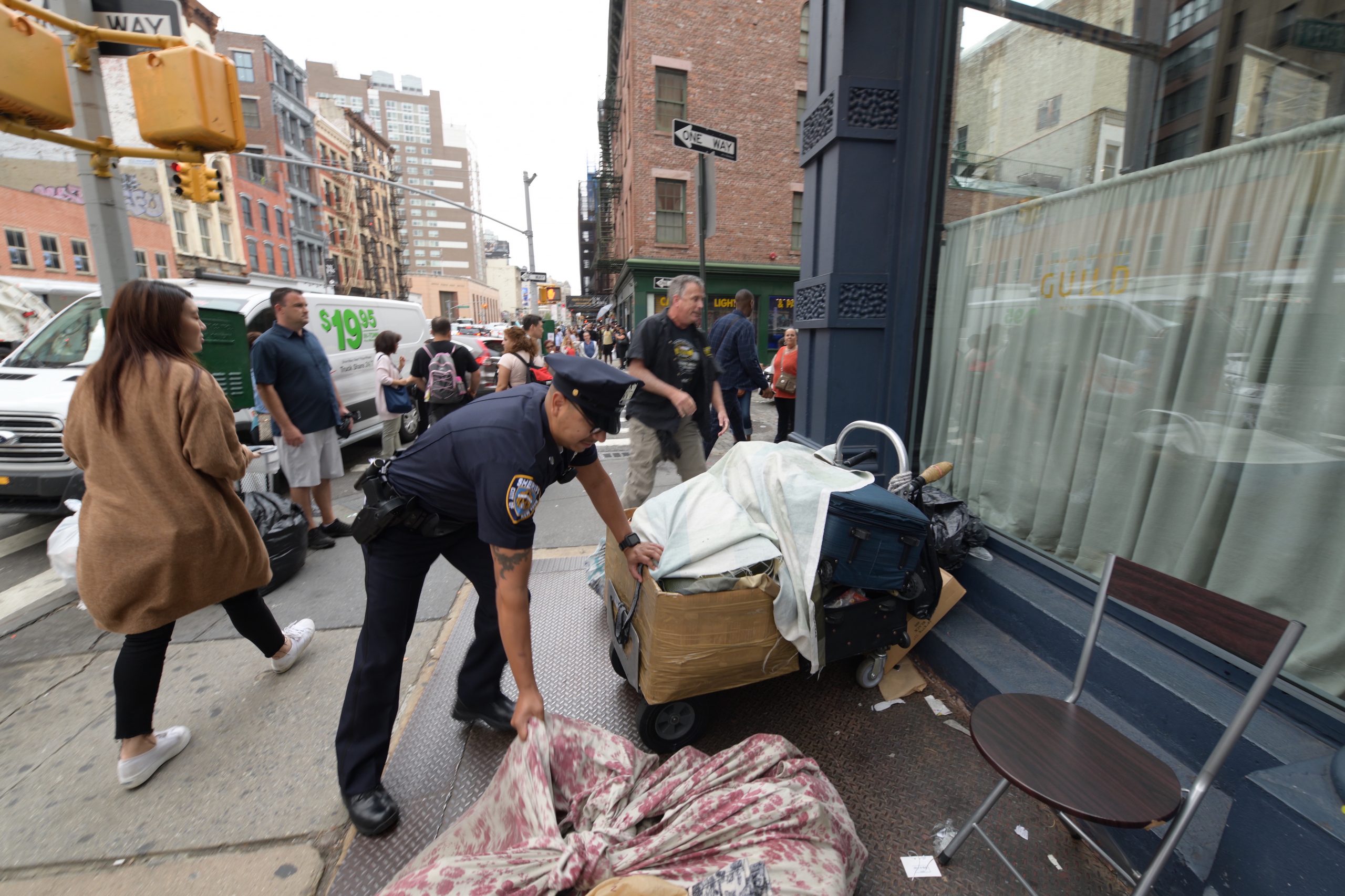
Barbara Askins, executive director of the 125th Street Business Improvement District in Harlem, says she has many questions about how an expansion of vendor permits will work and who will enforce the rules.
“Before we expand, what’s on the table?” Askins asked. “Right now, the city doesn’t have the resources to manage existing vending programs; will they be allocating new funding for expanding vending? Who will make sure they are in compliance with social distancing and safety is important.”
Askins said that since the city was hit with COVID-19, they are dealing with a proliferation of vendors putting up large tents without regard to vending rules on 125th Street.
“So who do you call to deal with it? Vendors are fighting over spaces. Who do you call? Not police – who is supposed to handle this?” Askins queried. “Certainly, there should be opportunity opened for street venders as we do for other businesses, but we cannot keep doing things and figuring it after you do it.”
TJ Whitham, director of Communications for the Times Square Alliance, where many new vendors may end up, issued a statement on behalf of his organization saying,”On this issue, because it is citywide we feel it is more important for the BID association to comment.”
The Flatiron BID were also contacted, but they did not comment for this article.
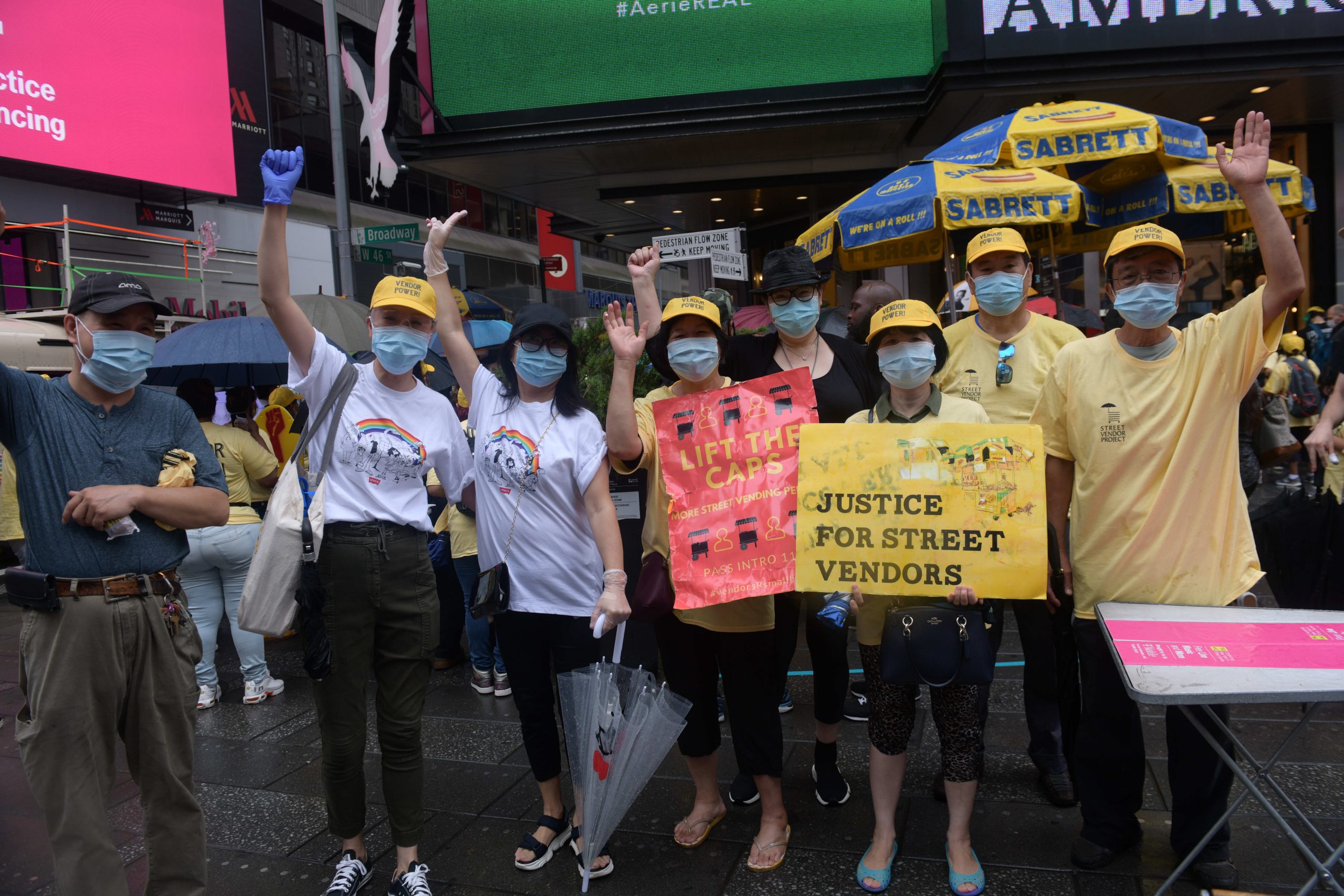
Much of the focus has come to Council Speaker Corey Johnson where the bill already has 26 votes in favor. The speaker has been mum on the bill up to now, despite critics on both sides saying he should take a position.
Johnson had no comment at this time on the bill. A spokesman for Johnson issued this statement:

Council Member Antonio Reynoso of Brooklyn, however, took a strong line in defense of the bill to expand vending.
“What’s more iconic – standing in front of Peter Luger’s [restaurant, in Reynoso’s home district] or in front of a Sabrett hot dog stand?” Reynoso asked. “There is nothing more quintessential to New York than our street vendors. The lack of support we have for street vendors is an embarrassment. We are asking for something very simple because these laws are extremely outdated, out of step with the new realities in New York City. I was able to support legislation for outdoor dining – I want my restaurants to succeed – they deserve our help, but they are not the only ones that deserve the help. Our street vendors do as well. We cannot allow our restaurants to get an out and continue to grow and succeed while abandoning the street vendors.”
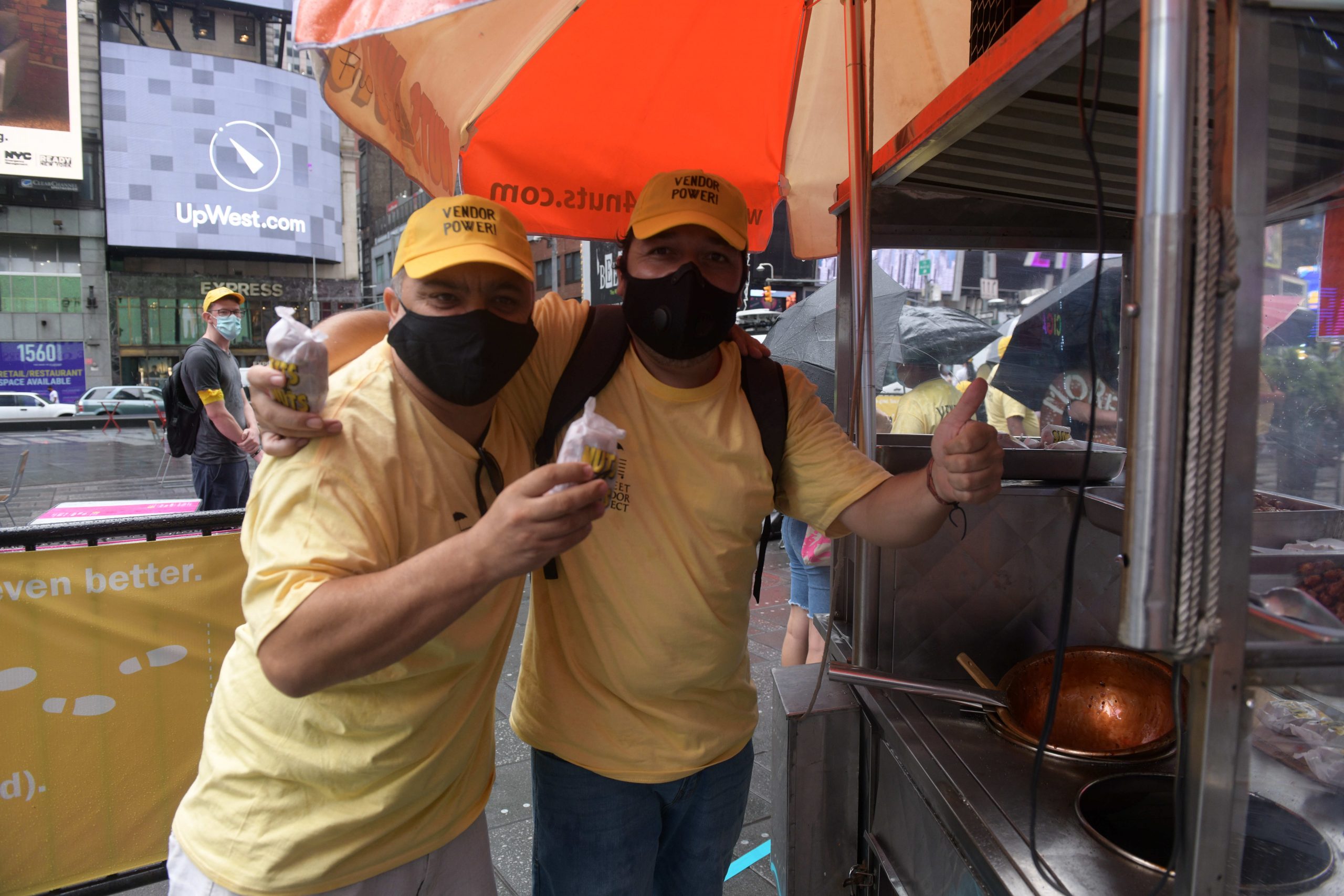
Advocates say thousands of vendors sell food without permits simply because they are unable to get one, risking heavy fines and arrest. Prior efforts to change this system, including in 2017, stalled in the face of opposition, primarily from what they say was the real estate industry. However, advocates are optimistic that the vending expansion will pass.
